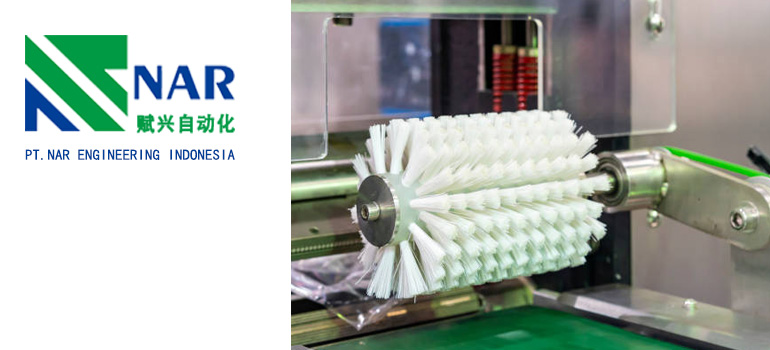Summary:
How to clean a conveyor belt?
Why do I need belt disinfection?
Can the conveyor belt be cleaned during use?
How to choose a suitable detergent?
The impact of improper belt hygiene
Cleaning the conveyor belt can improve the efficiency and safety of conveyor operation. Improper cleaning of conveyor belts can affect the efficiency of conveyor operation and even cause damage to equipment. Cleaning of conveyor belts is particularly important in the food and beverage industry, and high standards of hygiene must be followed to avoid contamination of food and beverages.
The following will take you to understand the importance of cleaning conveyor belts, how to choose suitable detergents, and the impact of improper belt hygiene.
Why do I need belt disinfection?

After a long period of operation, dirt and debris will remain on the belt, and untimely cleaning can cause damage to the belt. Therefore, cleaning and disinfection are extremely important. Clean conveyor belts can reduce pollution, improve hygiene and product safety levels.
Regular and appropriate cleaning helps to prolong the service life of the belt and reduce maintenance and replacement rates. Not only that, it can also extend the service life of the belt and reduce maintenance costs. A clean conveyor belt can also ensure conveying efficiency.
Regular cleaning of conveyor belts can improve the safety of operators, and maintaining a good working environment can reduce the risk of safety accidents.
Can the conveyor belt be cleaned during use?
In order to maximize the productivity of manufacturing or processing functions, it is best to clean the conveyor belt while it is running. Using a high-pressure cleaning machine can more effectively clean the conveyor belt.
When using conveyor belts, concentrate the injection of pressurized water or steam in the area to be cleaned. Dust and dirt deposits will be quickly washed away, leaving the surface spotless.
Unlike brushes that typically cannot clean small gaps and narrow spaces, high-pressure cleaning machines ensure that the conveyor belt is absolutely clean and free of any unnecessary deposits.
How to choose a suitable detergent?
When cleaning the conveyor belt, it is best to use a detergent diluted with water. Due to the frequent cleaning, hygiene, and disinfection of work areas to ensure high levels of food safety, automatic water and cleaning agent mixing systems are often used. They are equipped with valve control units that can mix water, chemicals, and disinfectants in the required proportions. The mixture prepared from this automatically provides fuel for the system. The benefits of an automatic mixing system include improving efficiency, saving labor, and reducing hygiene time.
The application of the industry varies, and the type of belt also varies. Choosing the appropriate cleaning agent is crucial. It is best to choose a sanitary agent that is compatible with belt materials and conveying items. We use different belts to transport meat, and we also use other belts to transport sticky candy. Therefore, cleaning agent suppliers need various hygiene agents to match the conveyor belt and the type of dirt to be cleaned, as certain substances (such as fat, oil, starch, or protein) are more difficult to remove than others.
Be sure to choose a suitable cleaning agent and check if it matches your belt type in our cleaning reference. Follow hygiene instructions and use appropriate concentrations of cleaning agents.
Due to its design, some belts are inherently easier to clean than others. However, no matter how innovative technology and materials may be, appropriate sanitation facilities remain mandatory.
The impact of improper belt hygiene
Improper hygiene of conveyor belts can have the following effects:
- Cracks appear on the surface of the belt
- Impact on conveying efficiency
- Due to premature wear of the belt, maintenance costs have increased
In the food and beverage industry, hygiene is a particularly important factor. If handled improperly, it can have serious consequences. Such as food safety level, product pollution risk, and even damage to the reputation of the food factory.
Lack of proper cleaning may also mean increased energy consumption, as the motor must work harder to compensate for the friction caused by debris.

